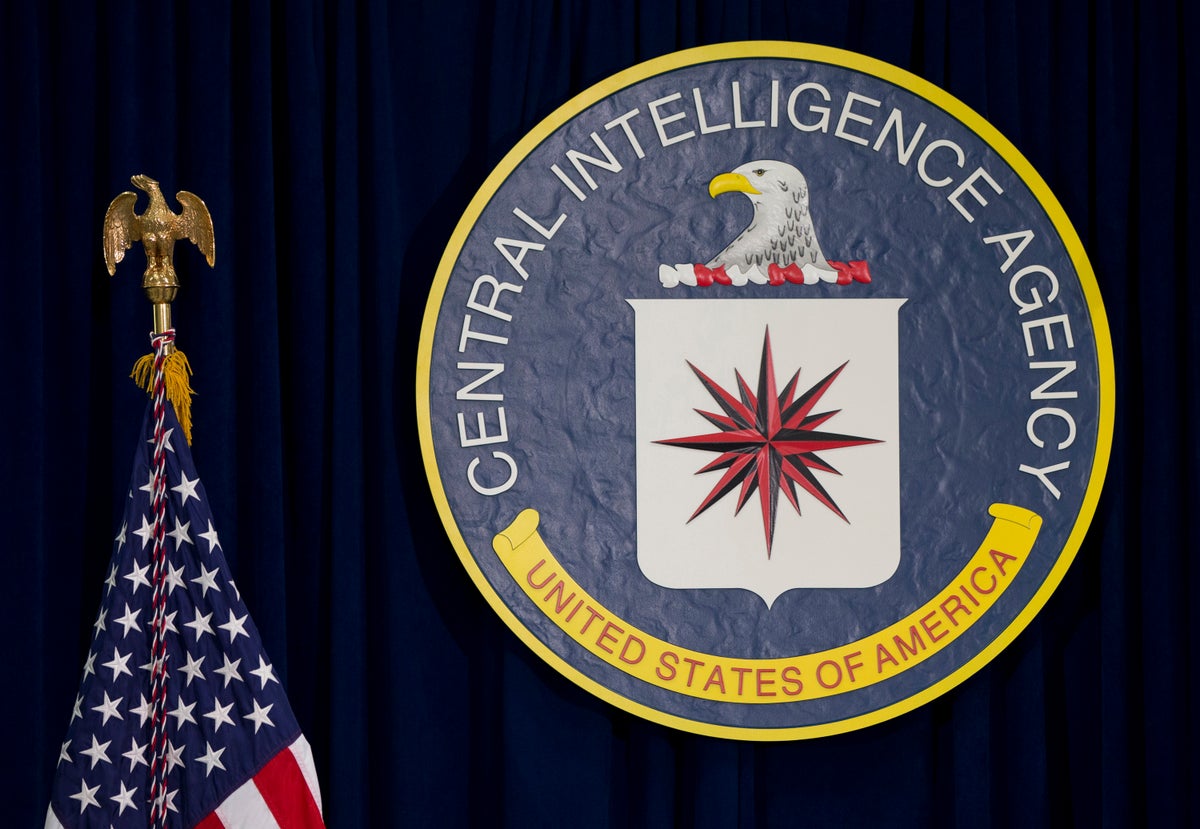
President Joe Biden will visit the CIA Friday at a time when his administration’s support for Ukraine has pushed the work of the normally secretive intelligence agencies into the limelight.
Biden will commemorate the agency's 75th anniversary since its founding after World War II. While at the agency’s headquarters in Virginia, Biden will meet with CIA officers who have worked on Ukraine to thank them for their work, according to a U.S. official who requested anonymity to discuss the plans.
Biden has established a more traditional relationship with the CIA and other agencies after former President Donald Trump repeatedly cast doubt on intelligence findings and attacked what he alleged was a “deep state” of opponents.
Still, there were tensions last year stemming from Afghanistan, with finger-pointing across the government during the fall of the American-backed government as the Taliban overran Kabul. Current and former intelligence officials worked frantically to evacuate Afghans who had helped the U.S. during the two-decade war.
The release of predictions that Russia would invade Ukraine in February was a public boost for spy agencies that are often criticized and facing new pressure to deliver insights on China and Russia. Biden authorized an unprecedented campaign to declassify findings about Russian President Vladimir Putin’s intentions to launch a new war. It has been credited with building support for sanctions that crippled the Russian economy and the ramp-up of military support to Kyiv.
Douglas London, a former CIA officer who has criticized the agency's direction in recent years, said the war had shown the CIA was on its way to becoming “an elite spy service again.”
“Its path to redemption has really been facilitated by Ukraine,” said London, author of “The Recruiter: Spying and the Lost Art of American Intelligence.”
But the intelligence community also underestimated Ukraine’s ability to resist the Russian invasion and wrongly predicted Ukrainian President Volodymyr Zelenskyy’s government would fall within weeks.
The agencies are reviewing how they assess a foreign government's perceived “will to fight” — an issue the U.S. also badly misjudged in Afghanistan last year when it believed President Ashraf Ghani's government would hold out for months, only for Ghani to flee and the Taliban to take Kabul as the U.S. was trying to evacuate.
Sen. Angus King, a Maine independent who sits on the Senate Intelligence and Armed Services committees, said he's pushed intelligence officials to review why there were “two significant breakdowns in a year.”
“The quality of the intelligence pre-invasion was excellent and absolutely world-class,” King said in a recent interview. “The problem was the assessment of what would happen after the invasion.”
Most of the intelligence community's work since the war began has been kept secret. U.S. officials have disclosed that they are providing Ukraine with information that Ukrainian forces have in turn used to hit high-value Russian targets, including the flagship Moskva.
The White House has tried to tamp down suggestions that the U.S. is directly helping Ukraine attack Russians out of concern that Russian President Vladimir Putin may see those suggestions as escalatory. Biden has said he wants to avoid a “third world war.”
As Ukraine successfully repelled Russian forces in the first weeks of the war, and under pressure from lawmakers in Washington, the Biden administration loosened its rules on sharing intelligence and is now providing more information to the Ukrainians. It has also committed $7 billion in weapons systems, ammunition, and other military aid since the war began in February.
But Ukrainian officials and observers say Ukraine is vastly outgunned by Russia in what's become a grinding war of attrition heavily reliant on artillery fire. Putin is believed by U.S. intelligence to have not given up on his initial aims to “neutralize” Ukraine in his eyes.
U.S. intelligence in the months ahead can be expected to have a large role in Ukraine. The U.S. is involved in shoring up the cyber defenses of Ukraine and other allies against Russia's capabilities to hack and steal from digital systems. Agencies are also on watch for election influence or interference from Russia amid expectations from top officials that Putin may use U.S. support for Ukraine as pretext to launch another campaign against an American election.
“Ultimately, the U.S. calculus is this: We want to do everything we can to support the Ukrainians while avoiding a direct conflict with the Russians,” said Dale Buckner, a retired U.S. Army Green Beret who now leads the security firm Global Guardian.







